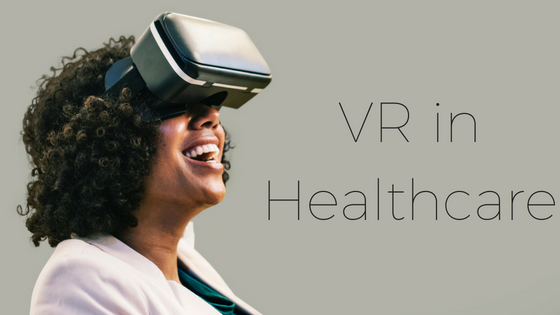VR in Healthcare

Virtual Reality is a phrase that makes most people think of video games. Although most VR companies are focused on entertainment, many are also aiming to help other areas of our life, including our healthcare. From helping doctors do their jobs better to giving patients some much-needed relaxation, these are some of the ways VR is helping healthcare.
Chronic Pain
People in chronic pain are constantly reminded of their condition throughout their entire lives. It can be difficult for people to distract themselves from their pain, even when engaged in an activity that requires full attention. One way that VR can help these people is by creating a hyper-realistic sensory experience that can take the focus away from the real world. By being placed in a new world, the brain’s threat response is limited, which helps lessen the pain felt by these patients. Furthermore, VR also causes higher relaxation in general, so the patient will likely feel at ease, even while being treated in a hospital.
Elder Care
Older patients may be wary of treatment provided by a young doctor. After all, it is difficult to imagine the physical problems people have as they grow older. Vision deterioration and hearing loss are two conditions that affect the elderly every day, but are difficult to envision when you have full use of your senses. Luckily, Embodied Labs has created a VR experience to allow doctors to feel what their patients go through. We Are Alfred is a 7-minute VR software that lets you live as Alfred, a 74-year-old man with both hearing and vision loss. Although this software may not help patients directly, it does open the door for a better patient experience at the hands of a doctor who knows what they are going through.
Mental Health
Mental health disorders are incredibly common, even if we might not hear about them constantly. These disorders affect people in debilitating ways, causing problems at work, at home, and in relationships. Luckily, Limbix is working to create treatment methods to help people with one of many disorders. Although they are currently in the Production phase with their first treatments, I expect we’ll see Limbix as a useful tool in no time.
Healthcare on the whole may not change rapidly, but VR is helping it move in the right direction. While it may take some time to implement these changes on a large scale, you can expect to see more VR technologies showing up in doctor’s offices and hospitals everywhere.
From FrankMichelin.com